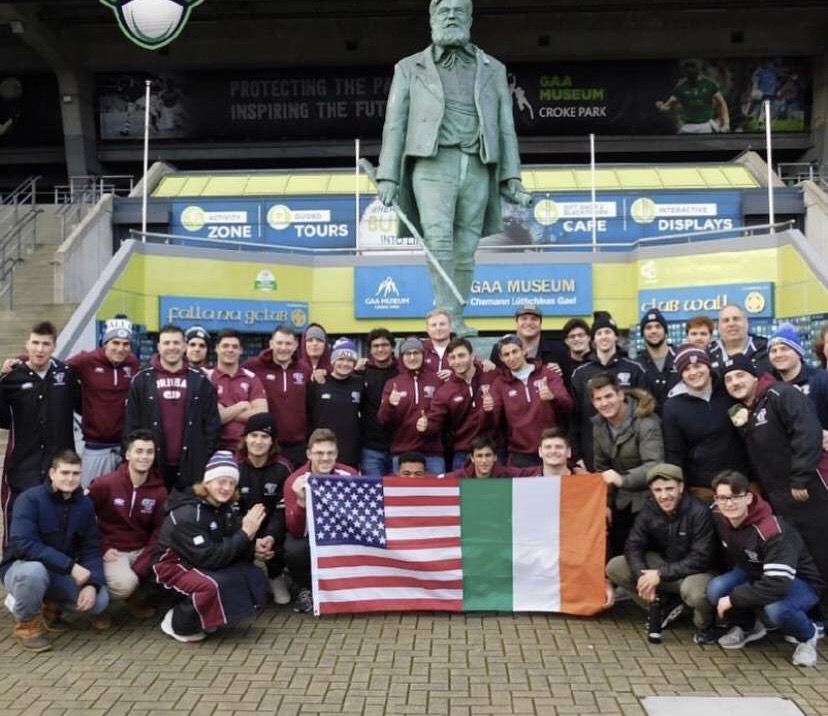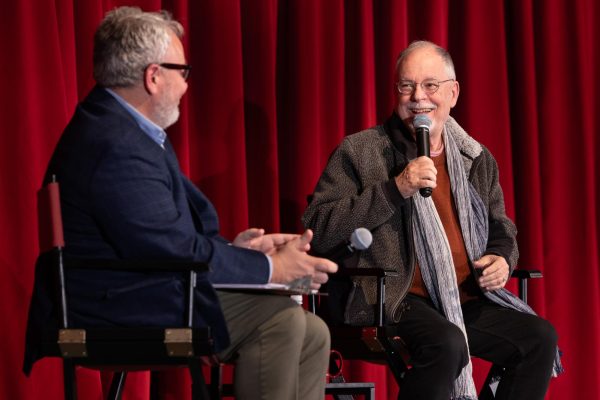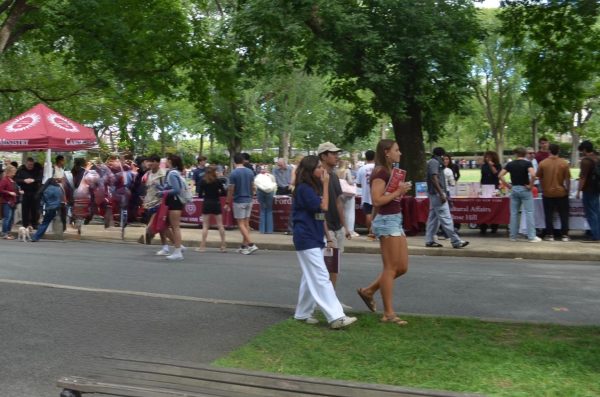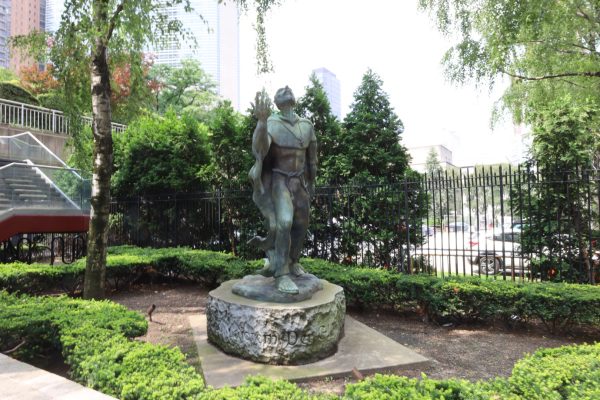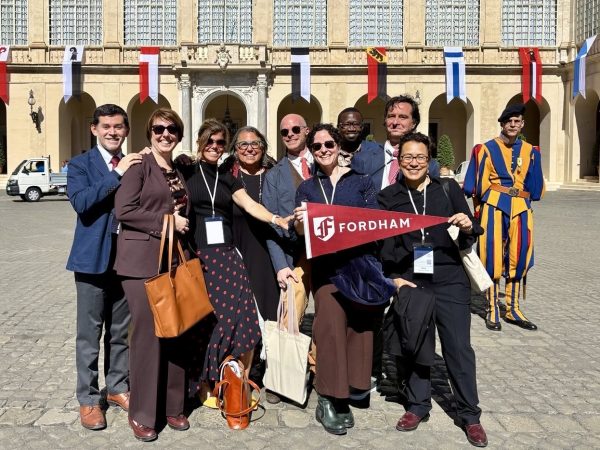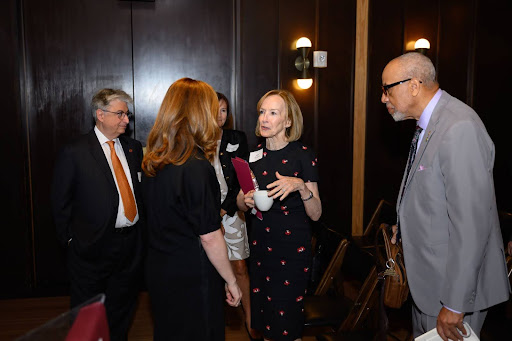Fordham Men’s Rugby Team Tours Ireland
The Fordham men’s rugby team went on a two-week tour to Ireland over winter break. Not only did the players gain excellent rugby experience, but they also said they had great “craic” or fun, exploring the culture and sights of Ireland.
During the tour operated by Irish Rugby Tours, the team played three matches against Irish rugby teams.
The team had been largely dormant since finishing the season with an explosive win versus Binghamton University on Nov. 16. It was revived on this early January trip, playing matches against Athy Rugby Club, Galwegians and Highfield.
Phil Terrigno, assistant coach of the team, said that he was happy with the player’s performance.
“I knew (the team was) going to be a bit undercooked before going to tour, performances were very strong considering that,” he said.
Performances were strong indeed despite the team’s relative inactivity over break, as the team won against Athy Rugby Club and Galwegians 19-17 and 33-17, respectively.
“We played youth-20 teams, meaning players are typically 17-19 years old,” said Terrigno, “Senior men’s teams would have been massive challenges.”
Between matches, the rugby team benefitted from two sessions with Director of Rugby at Trinity College Dublin Tony Smeeth. Trinity College Dublin, also known as the University of Dublin, is home to the oldest existing rugby club in the world, which has been playing since the 1830s.
Tony Smeeth has coached rugby for over 20 years. He has worked closely with American rugby players for a long time, having previously coached teams in Seattle for 10 years.
“That the players had access to a coach of that caliber was unparalleled,” said Terrigno. “Not a lot of teams get that opportunity. It was a great experience to see how they do things.”
Nicholas Ulto, FCRH ’21 said that In between honing their skills, players also got to see the cultural role of rugby in Ireland.
“It was really cool just going and seeing how much rugby impacts their culture,” Ulto said. “Before the first game, we went to the field, and there were so many little kids playing rugby, it’s like their little league or football.”
He said the team visited various cultural sites such as the Cliffs of Moher and Blarney Castle, where the team hung upside down to kiss Blarney Castle’s Stone of Eloquence. The Stone of Eloquence, named for its fabled ability to bestow eloquence on everyone that kisses it, is an iconic attraction for visiting tourists.
“It’s a tradition, so the whole team did it,” said Ulto.
The team also visited Aviva Stadium in Dublin and Croke Park, home of the Gaelic Athletic Association. The Gaelic Athletic Association, Ireland’s largest sporting organization, is an organization dedicated to the promotion of Gaelic games and Irish culture.
The players had the opportunity to play and learn about the different sports in Irish culture.
“We went to Croke Park where we learned about the Irish traditional games, hurling, Gaelic football and handball,” said John Grifonetti, GSB ’21. One day we got to experience those games and play those games and learn about the tradition behind them and what that means to the people.”
Terrigno agreed with Grifonetti’s statement. “[The team]learned how to play hurling and Gaelic football, and both of those sports are really big parts of Irish culture. It’s the only place in the world where they’re prominently played,” said Terrigno.
Terrigno credited the arrangement of the tour to Jared Smallwood, GSB ’20, and Tony Kutz, GSB ’20.
“They did a great job selling the concept to their teammates, organized the tour fully in two months and organized a full set of gear for the players on a pretty short timetable,” Terrigno said.
The funding for the tour was procured thanks to donations from family members of players and alumni. Team Publicist Sean Leary, GSB ’21, led a campaign to raise funds for the trip.
“It was great to see so much support from the entire Fordham rugby community, even from alumni who were not able to go,” said Leary. “It is really incredible to see so many alumni committed to the future of the program.”
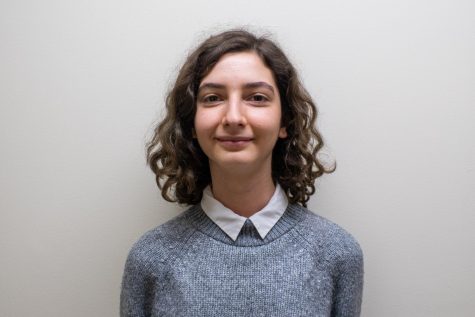
Hasna Ceran is a junior double majoring in economics and Middle East studies. She began by writing the USG Column for Volume 101 and served as an Assistant...



































































































































































































